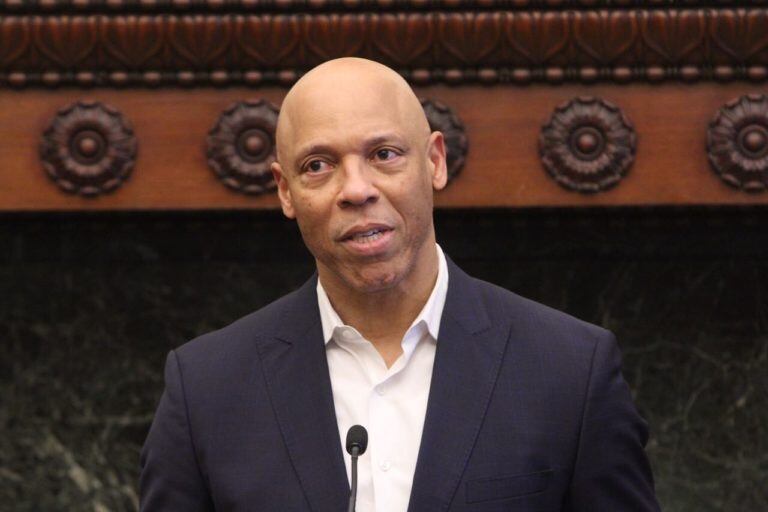On the first day of virtual school in Philadelphia, about 82% of the school district’s students logged on — a significant improvement over the spring when the daily average hovered around 60% after schools were suddenly forced to go online.
Superintendent William Hite said Thursday that engagement varied by school “from 100% to numbers that are much lower.” He said more details would be available later.
Wednesday’s opening was marred by problems with bandwidth and internet speeds, but those issues have been largely resolved, he said. In a weekly call with reporters, Hite said the “sheer volume” of students logging on affected the speed of the servers. The district’s technology team adjusted the servers to control capacity, he said. On Thursday, speeds had improved.
“We added capacity overnight, and so far this morning, it appears the servers are meeting the need,” he said.
District officials have estimated that 18,000 students still lack internet access, a figure Hite said is based on responses from 22,000 families who have been contacted by school officials. Of that number, 1,700 didn’t have a means to get online. “Based on the individuals who responded, we’re extrapolating through the whole population,” Hite said. The district enrolls close to 125,000 students.
But he said it would be “simplistic” to conclude that the 18 percent who did not log in on Wednesday all lack internet access. “Schools are collecting information,” he said. “I could be that they don’t have a Chromebook or forgot it was the first day. We can’t put it on one thing.”
Hite and Deputy Mayor Cynthia Figueroa said that families who need to get online should call the city’s hotline at 211 and enroll in the PHLConnectED program. If eligible, they will get either a code and self-install kit for use in their home, or be provided with a hotspot if they are housing insecure.
The district is still handing out Chromebooks at three locations and repairing and reprogramming them at two of the sites. Tech support is also available by calling 215-400-4444. Many families waited until the last minute to get devices, and for the past few days lines have formed outside district headquarters at 440 N. Broad Street.
The district resumed providing “grab and go” meals, which can be picked up on Thursday mornings between 9 a.m. and noon at 62 sites throughout the city. Each box will include five breakfasts and five lunches for each child. Hite emphasized that families will not have to produce student ID numbers to pick up the meals as had been previously thought. In the wake of the pandemic, the U.S. Department of Agriculture issued a waiver that allowed districts to serve all children free meals, not just those enrolled in schools. After saying it would end the waiver on Sept. 1, USDA has decided to extend it.
On Tuesday, 31 city-run access centers, where children can go to be supervised while their caregivers work, will open around the city. Those centers, which can accommodate up to 800 children, “are near full, but not at full capacity,” Figueroa said.
On Sept. 21, another group of centers will open, and Figueroa expects an ultimate capacity of just over 2,200 slots. She said 1,800 families have applied so far, and 1,400 have qualified. Students who have special needs are eligible, she said; if any have a personal aide, the number of children accepted at that site will be adjusted.
The centers, depending on their size, expect to accommodate one or more cohorts of 22 children. Supervising personnel will include employees of the Parks & Recreation department, the public library, and community-based organizations.





